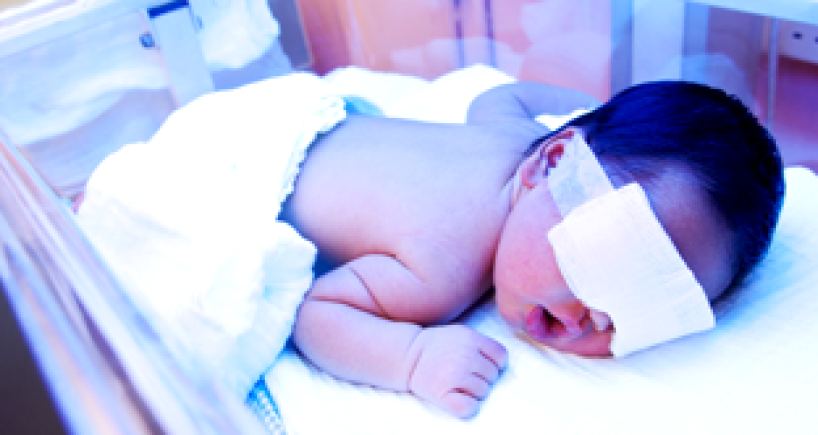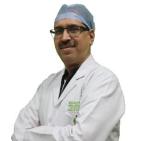
Oncology
Embrace Life To Fight Cancer
Dr. Pradeep Kumar Jain Feb 04, 2015
 Cancer is a disease in which cells of any part of the body divide without control and form tumours. In a detailed interview Dr. Pradeep Jain talks about how the deadly disease can be prevented
What causes cancer?
It is nearly impossible to prove the specific cause of a cancer in any individual because most cancers have multiple possible reasons. Common environmental factors that contribute to cancer death include tobacco (25-30 per cent), radiation — both ionising and non-ionising (10 per cent), stress, lack of physical activity and environmental pollutants.
What are GI cancers?
Gastrointestinal (GI) cancers are those which arise in organs of gastrointestinal tract such as cancers of Esophagus (food pipe), stomach, small intestine, large intestine (colon and rectum) and related organs such as liver, pancreas and biliary tract (gall bladder and bile ducts).
Are they common in India?
These cancers are not uncommon and the incidence of these cancers are growing except stomach cancers.
What are the symptoms?
Though there are no specific signs or symptoms which conclusively point towards cancers, there are strong indicators like lump in abdomen, difficulty in swallowing, severe loss of appetite and weight, prolonged bleeding from the GI tract (bleeding per rectum in elderly age group), alteration in bowel habits,
painless deep jaundice with white coloured stools and itching, intestinal obstruction in elderly, sudden detection of diabetes with weight loss, etc.
How to detect cancer?
There are no authentic tests to detect cancer in normal patients. However, when symptoms are there, or in high risk patients, various tests are employed as prescribed by the doctor. In GI cancers investigative modalities for diagnosis or staging are ultrasound, upper or lower GI endoscopies, CT scans, MRI test, endoscopic ultrasound, PET scan, tumour markers (though not very specific, but different markers are secreted by different tumours), biopsy, etc. Not all tests are required in all cancers.
What are tumour markers?
Tumour markers are the substances present in the blood, urine or body tissues that are elevated in particular cancers. Different tumour markers are raised in different cancers. There are many different tumour markers, each indicative of a particular disease process and they are used to help detect the presence of cancer. An elevated level of a tumour marker can indicate cancer; however, there can also be other causes of the elevation. Also note that in the absence of the tumour markers, the specific cancer cannot be ruled out. Hence they are of limited significance with a few exceptions. The most common use of tumour markers is in the follow up period after a specific therapy.
Can we detect a cancer at an early stage?
As all the organs related to the GI tract are inside the body and are not visible on the outside except the anus, these cancers are difficult to detect in earlier stages. For this reason these tumours are usually detected in advanced stages (GI cancer produce symptoms only when they have grown to a significant size causing blockage or bleeding) or when spreads all around. They are sometimes detected in early stages either by chance on investigations for other purposes or when screening is done in high-risk patients or population.
Does it spread from one person to another?
No, not at all! Cancers do not spread from one person to other like any infectious diseases, etc.
Are GI cancers curable?
If a cancer is diagnosed at an earlier stage almost all cancers are curable, whereas the chances of a cure decrease if diagnosed at an advance stage. In advanced stages, your doctor can employ multiple modalities such as surgery, chemotherapy or radiotherapy either alone or in different combination to maximise the chances of cure.
If the patient cannot be cured of the cancer, the aim of the treatment is to improve the quality of life until the patient survives and to aim for maximum longevity of life. ‘Cure’ for cancer is measured in five year disease free survival i.e. if a patient survives for more than five years free of disease, s/he is considered to be ‘cured’. Any patient treated for cancer should stay in touch with his doctor for a lifetime to pick up any rare recurrences early, thereby planning further treatment.
What treatments are available?
Three kinds of treatment are used to treat cancer:
• Surgery: Removing the cancer through an operation.
• Chemotherapy: Using anti-drugs to kill cancer cells.
• Radiation therapy: Aiming high-energy rays at the cancer to destroy it.
These modalities can be used either alone or in different combination to achieve the best possible outcome for a specific patient. Even if the disease cannot be cured, these can be used to prolong life and provide a good quality of life as much as possible. Other therapies used for the palliative purposes (relief of symptoms) are radiofrequency ablation (killing tumour with the use of radiofrequency waves), cryotherapy (by freezing tumour), ethanol injections into the tumour, chemo-embolisation (blocking the blood supply to the tumour), palliative stenting (putting stents) in esophagus, duodendum, bile duct, colon to relieve obstruction.
Does cancer run in families?
Yes some cancers like colorectal cancers (cancer of large intestine), stomach and pancreas may run in families.
What can I do to increase my chances of cure?
As soon as the cancer is diagnosed it should be treated. Treatment should be completed in a regular fashion without interruption. Regular follow-up is a must to detect recurrences early so that intervention can be done at the earliest to increase the chances of cure further.
Cancer is a disease in which cells of any part of the body divide without control and form tumours. In a detailed interview Dr. Pradeep Jain talks about how the deadly disease can be prevented
What causes cancer?
It is nearly impossible to prove the specific cause of a cancer in any individual because most cancers have multiple possible reasons. Common environmental factors that contribute to cancer death include tobacco (25-30 per cent), radiation — both ionising and non-ionising (10 per cent), stress, lack of physical activity and environmental pollutants.
What are GI cancers?
Gastrointestinal (GI) cancers are those which arise in organs of gastrointestinal tract such as cancers of Esophagus (food pipe), stomach, small intestine, large intestine (colon and rectum) and related organs such as liver, pancreas and biliary tract (gall bladder and bile ducts).
Are they common in India?
These cancers are not uncommon and the incidence of these cancers are growing except stomach cancers.
What are the symptoms?
Though there are no specific signs or symptoms which conclusively point towards cancers, there are strong indicators like lump in abdomen, difficulty in swallowing, severe loss of appetite and weight, prolonged bleeding from the GI tract (bleeding per rectum in elderly age group), alteration in bowel habits,
painless deep jaundice with white coloured stools and itching, intestinal obstruction in elderly, sudden detection of diabetes with weight loss, etc.
How to detect cancer?
There are no authentic tests to detect cancer in normal patients. However, when symptoms are there, or in high risk patients, various tests are employed as prescribed by the doctor. In GI cancers investigative modalities for diagnosis or staging are ultrasound, upper or lower GI endoscopies, CT scans, MRI test, endoscopic ultrasound, PET scan, tumour markers (though not very specific, but different markers are secreted by different tumours), biopsy, etc. Not all tests are required in all cancers.
What are tumour markers?
Tumour markers are the substances present in the blood, urine or body tissues that are elevated in particular cancers. Different tumour markers are raised in different cancers. There are many different tumour markers, each indicative of a particular disease process and they are used to help detect the presence of cancer. An elevated level of a tumour marker can indicate cancer; however, there can also be other causes of the elevation. Also note that in the absence of the tumour markers, the specific cancer cannot be ruled out. Hence they are of limited significance with a few exceptions. The most common use of tumour markers is in the follow up period after a specific therapy.
Can we detect a cancer at an early stage?
As all the organs related to the GI tract are inside the body and are not visible on the outside except the anus, these cancers are difficult to detect in earlier stages. For this reason these tumours are usually detected in advanced stages (GI cancer produce symptoms only when they have grown to a significant size causing blockage or bleeding) or when spreads all around. They are sometimes detected in early stages either by chance on investigations for other purposes or when screening is done in high-risk patients or population.
Does it spread from one person to another?
No, not at all! Cancers do not spread from one person to other like any infectious diseases, etc.
Are GI cancers curable?
If a cancer is diagnosed at an earlier stage almost all cancers are curable, whereas the chances of a cure decrease if diagnosed at an advance stage. In advanced stages, your doctor can employ multiple modalities such as surgery, chemotherapy or radiotherapy either alone or in different combination to maximise the chances of cure.
If the patient cannot be cured of the cancer, the aim of the treatment is to improve the quality of life until the patient survives and to aim for maximum longevity of life. ‘Cure’ for cancer is measured in five year disease free survival i.e. if a patient survives for more than five years free of disease, s/he is considered to be ‘cured’. Any patient treated for cancer should stay in touch with his doctor for a lifetime to pick up any rare recurrences early, thereby planning further treatment.
What treatments are available?
Three kinds of treatment are used to treat cancer:
• Surgery: Removing the cancer through an operation.
• Chemotherapy: Using anti-drugs to kill cancer cells.
• Radiation therapy: Aiming high-energy rays at the cancer to destroy it.
These modalities can be used either alone or in different combination to achieve the best possible outcome for a specific patient. Even if the disease cannot be cured, these can be used to prolong life and provide a good quality of life as much as possible. Other therapies used for the palliative purposes (relief of symptoms) are radiofrequency ablation (killing tumour with the use of radiofrequency waves), cryotherapy (by freezing tumour), ethanol injections into the tumour, chemo-embolisation (blocking the blood supply to the tumour), palliative stenting (putting stents) in esophagus, duodendum, bile duct, colon to relieve obstruction.
Does cancer run in families?
Yes some cancers like colorectal cancers (cancer of large intestine), stomach and pancreas may run in families.
What can I do to increase my chances of cure?
As soon as the cancer is diagnosed it should be treated. Treatment should be completed in a regular fashion without interruption. Regular follow-up is a must to detect recurrences early so that intervention can be done at the earliest to increase the chances of cure further. Categories
Clear allMeet the doctor

Dr. Pradeep Kumar Jain
PRINCIPAL DIRECTOR & HOD LAP GI, GI ONCO, BARIATRIC & MIS SURGERY | Fortis Shalimar Bagh
- Oncology | Surgical Oncology | Robotic Surgery
- Gastroenterology and Hepatobiliary Sciences | GI, Minimal Access and Bariatric Surgery | Metabolic & Bariatric Surgery | Robotic Surgery
-
35 Years
-
1800



















